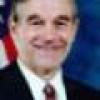Capitalism Without Capital
Not only is the United States on the verge of bankruptcy, but so are its people and private institutions...
IT'S BEEN LONG UNDERSTOOD that the federal United States government is going deeper into debt, writes Congressman Ron Paul, consistently raising the debt ceiling and demonstrating no fiscal restraint.
In recent years, new debt ceiling increases have been placed in "must pass" legislation, guaranteeing that Republicans as well as Democrat politicians would vote for them when Congress was under Republican control.
We also know that the US nation's "negative savings rate" reflects the habits of private citizens – habits not tremendously different from those of the public sector. Yet the signs of decline are becoming ever more apparent. So apparent, in fact, that it seems unlikely that banking bailouts or other gimmicks will have even short-term success.
More inflation, and creating moral hazard by bailing out egregious offenders, is a recipe for disaster. These activities can seem to provide some short-term relief, but it seems we are now at a significant crisis point, where monetary policy gimmicks don't provide the band-aids they did in the past.
Not only is our nation on the verge of bankruptcy, but so are its people and private institutions. We are now repeatedly hearing about businesses "needing to access the credit market to make payroll." This is an unmistakable sign of more dire consequences ahead for the economy.
If businesses must borrow just to make payroll, this is evidence of a severe undercapitalization that cannot be sustained, even for the short run. Couple these facts with items such as the explosion of the "pay-day loan" industry, and the unmasking of the false sense of economic well-being is nearly complete.
These pay-day loan companies use preferred access to easy credit to inject cash into the hands of the working poor. They are nearly always set up in lower-income neighborhoods. These people, who are struggling to buy food and pay rent, get addicted to credit as to a drug. Their standard of living is only further depressed by the interest payments these loans demand, payments which make them profitable to their providers.
Thus the recipients are left even less capable of paying for items such as food and housing from their own pocket, forcing them – in the long run – to use this kind of credit again and again.
These people are often the very ones being paid by businesses who "borrow to make payroll." And here is the dark underbelly of the fiat money, borrow-and-spend economy this nation has been building.
As the government takes over more and more functions of the economy, many people see the rise of socialism as an antidote to this failure of "capitalism". However, the fact remains that our economy has been increasingly running on debt, not capital. Capitalism does not exist without capital – and debt is not, has never been and will never be, a form of capital.
Only now are we seeing the more dire implications of an economy without capital.













 Email us
Email us
